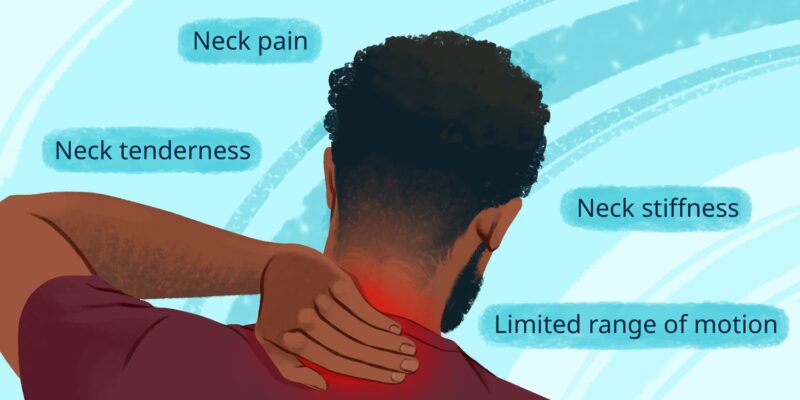Whiplash is one of the most common car accident injuries. It occurs when a sudden, forceful motion causes the head and neck to jerk rapidly back and forth, like the cracking motion of a whip. This can strain the muscles, tendons, and ligaments in the neck and cervical spine.
While whiplash symptoms often arise immediately, they are frequently delayed, developing hours or even days after the initial injury. Understanding these delayed whiplash symptoms can help accident victims in West Virginia seek proper medical attention and avoid long-term complications.
Why Whiplash Symptoms Are Often Delayed
There are a few reasons whiplash symptoms may not appear until later. First, the adrenaline and shock after an accident can mask pain. Neck stiffness and soreness also builds gradually as muscles tighten post-injury. Additionally, it takes time for inflammation to develop around strained soft tissues.
Even if you feel fine immediately after an accident, delayed onset of whiplash typically causes:
- Neck pain and stiffness
- Headaches
- Shoulder pain
- Dizziness
- Back pain
- Arm tingling or numbness
Never assume you escaped injury just because these symptoms of whiplash don’t appear instantly. Soreness, limited range of motion, and radiating pain can begin 24 hours or more post-accident. Even months after traumatic events, victims may still battle chronic neck and spine issues if injuries go untreated. Always see a doctor after any car accident to check for whiplash.
Causes of Delayed Whiplash Symptoms
Whiplash injuries occur because the head and neck are extremely vulnerable in crashes. Unlike the torso, they aren’t restrained by seat belts during sudden impact. Several collision forces can cause whiplash:
- Rear-end collision: Sudden acceleration whips the head backward.
- Side-impact crash: The neck bends sideways at an extreme angle.
- Front-end collision: The head jerks forward and then recoils backward.
These violent motions push cervical vertebrae beyond their normal range. Spinal discs, facet joints, and ligaments end up overstretched or torn. Surrounding muscles also strain to the point of tears. This causes acute pain and inflammation. But tissue damage can take hours to become apparent.
Dangers of Ignoring Delayed Whiplash
Trying to “tough out” delayed symptoms of whiplash can cause long-term damage. Without proper treatment, neck stiffness and headaches can become chronic issues. Ongoing inflammation may also cause permanent nerve involvement. Numb, tingling arms after a crash signal cervical disc herniation or pinched nerves. Seeking prompt medical attention is key.
Doctors create tailored treatment plans which may include:
- Pain management: OTC medication, steroid injections, trigger point therapy
- Chiropractic adjustments: Restore mobility, ease muscle spasms
- Physical therapy: Stretching, exercises to rebuild strength
- Soft tissue massage: Increase blood flow, reduce muscle knots
- Surgery: If discs, facet joints, ligaments require repair
Don’t let insurance companies dismiss later-onset whiplash pain. Be very cautious resuming normal activity before an examination, even if you feel fine initially. Delayed symptoms still require expert care. Ignoring issues like soreness or headaches risks chronic spinal instability, disc degeneration, and excruciating nerve pain down the road. Seek a thorough medical evaluation ASAP.
Getting Treatment for Delayed Whiplash
Seeing a chiropractor or physical therapist promptly after an accident can help restore range of motion and relieve muscle spasms before they get ingrained. But once whiplash pain becomes chronic, you may need to consult a pain management doctor.
The pain specialist will conduct a medical history and physical examination, plus order CT or MRI scans to pinpoint the damage. They can then devise a comprehensive treatment plan that may incorporate:
- Prescription medications
- Muscle relaxers
- Trigger point injections
- Spinal manipulation
- Gentle massage
- Stretching exercises
Most cases of whiplash resolve within 3 months when properly treated. However, neglecting early symptoms raises the risk of chronic pain.
Don’t Delay – Talk to a Whiplash Injury Lawyer
The insurance company may try to downplay your delayed whiplash symptoms. Don’t let them ignore or minimize your suffering. You deserve fair compensation for your medical costs, lost income, pain, and reduced quality of life after a car accident.
The caring whiplash injury lawyers at Miley Legal help clients obtain care for accident injuries right away – don’t hesitate to contact their West Virginia office today.
Their attorneys have helped many crash victims with chronic pain get the money they need to heal. With their help, you can focus on your recovery rather than fighting the insurance company.








Comments